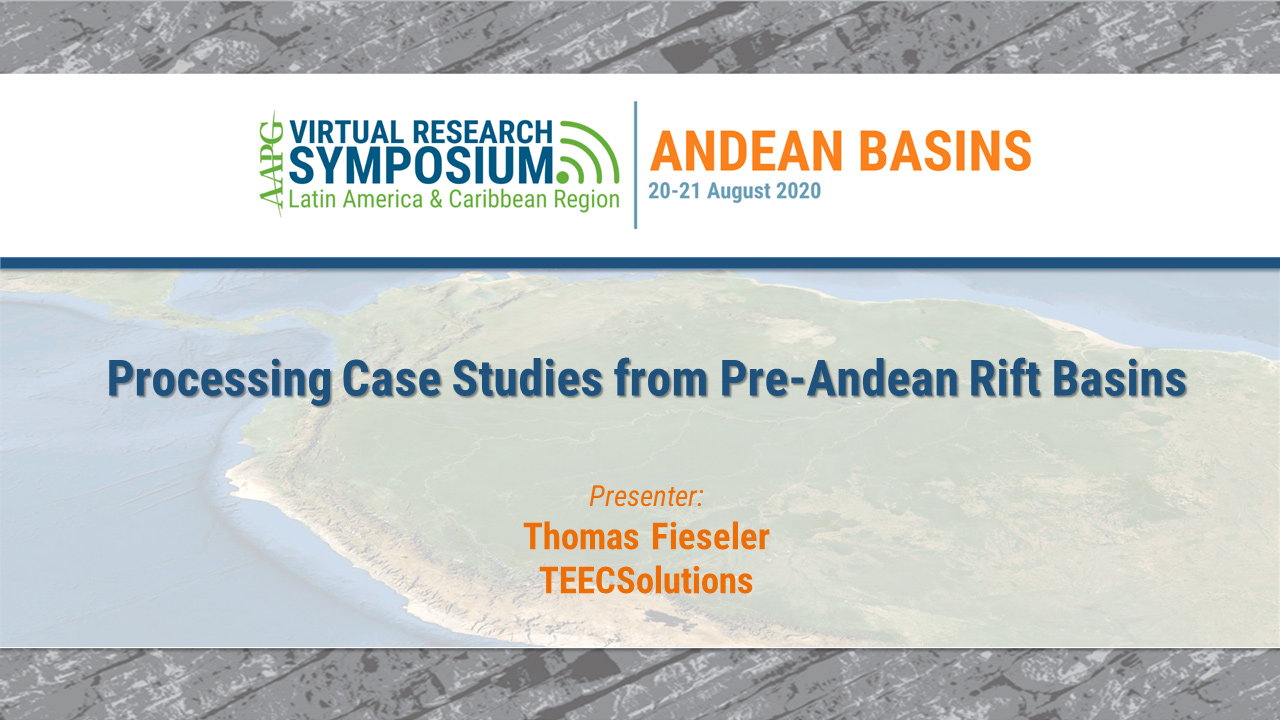
Summary
Author: Thomas Fieseler (presenter), Sandra Arevalo, TEEC Solutions
Seismic exploration in South American Pre-Andean rift basins proves to be a very complex task due to rough topography, complex subsurface geology and often fast or highly variable near surface velocity. Furthermore, surface conditions often do not allow for a seismic acquisition design that fits the needs for the complex subsurface imaging challenges. As a consequence, seismic processing strategies that work in simpler settings do not lead to satisfactory results: many datasets were reprocessed several times without much improvement suggesting that there is no more information in the acquired data. This assumption is often not true. Only the processing strategy needs to be adapted to the challenges arising from topography and subsurface geology. Experience shows there are several key steps to a successful imaging in such settings: 1. Near surface velocity model and tomo statics, 2. Surface wave suppression, 3. Increase in signal-to-noise ratio, 4. Stacking/migration velocities & residual statics, 5. Data regularization, 6. Interval velocity model & Reverse Time Migration.
Bio:
Thomas Fieseler, TEECsolutions
Thomas is a Geophysicist from the University of Muenster, Germany. With 10 years of experience, he currently works at TEECsolutions GmbH, Villahermosa, Mexico, as Senior Geophysicist, where he is Seismic Processing Team Leader.
Thomas is a member of SEG, EAGE and AMGE.
Please log in to view or purchase the video presentation